By Amy Jimenez
His smile was unlike other smiles teenagers wear. It screamed bravery and courage, masking the pain and loneliness I could clearly hear behind his words. That day, he showed up to school. We celebrated his step forward. One step toward his goal of graduating was worth celebrating. The dream of graduation is easily clouded when your report card shows half the credits you need to walk across the stage. However, this smile showed the determination of fulfilling a mother’s dream, a dream passed on to a son who painfully works through her loss every day. His smile can get lost in the labels and numbers I see in the literature, headlines, and records. Unaccompanied. Homeless. Food Insecure. At Risk. Instead, his smile should represent a dreamer—his dreams of travel, of college, of somehow experiencing hope again.
Teenagers just like this student bring me to a place of humility, of wanting more for them, and dreaming big dreams alongside them. My heart for high school kids led me to work with Waco ISD Homeless Outreach for the past two years, a phenomenal department that works with families and high school students who are homeless as defined by the McKinney-Vento Act. Unaccompanied homeless youth (UHY) are students who experience homelessness and are not in custody of a parent or legal guardian. Right away I learned about the extensive issues homeless high schools students face, including risk of dropping out, family conflict and violence, low self-esteem, sex trafficking, and other deep wounds.
- In the U.S., 1.6 million youth experience homelessness.
- 20-40% of unaccompanied homeless youth were abused sexually in their homes
- 40-60% of UHY were abused physically
- 20-40% of UHY have been thrown out of their homes because they are gay, lesbian, bisexual, transgender, or pregnant.[1]
Many of our students don’t realize they are homeless. To them, staying at a motel or sleeping on a couch or in a car is just life and they are fighting to keep up with their school work and jobs. Their stories are really tough to hear, but it’s a privilege when they bravely share them. Stories I’ve heard from our students in Waco range from unsafe living conditions, abusive relationships, couch surfing, incarcerated parents, and aging out of a life in foster care. Some students have confided being kicked out because of whom they love. The calls that really punch your gut are ones from our partners at UnBound, who prevent and intervene when girls have been trafficked. Hearing that students from Waco High and University High have been rescued from a trafficker will never get easier, but it sure ignites a desire to find ways to care for them and prevent it from happening again. These stories are also filled with winning medals at track meets, making the top 10% of their class, reuniting with mom, receiving a scholarship from Mary-Hardin Baylor, and walking across the stage at graduation. On paper, we call them “Unaccompanied Homeless Youth”. But when you get to know them, you instead begin to see them as resilient, persistent, tenacious, and brilliant.
 The Cove began as a dream of Cheryl Pooler’s six years ago after hearing the stories of homeless families in Waco ISD. With over 1,300 homeless students, Cheryl, Waco ISD’s Homeless Liaison, has meticulously fought for each student and their families to have access to resources and dignity throughout their education in Waco ISD. Cheryl and I share a soft spot in our hearts for high school students. When you have the privilege of meeting a high school student who is experiencing homelessness, you’ll never forget his or her story.
The Cove began as a dream of Cheryl Pooler’s six years ago after hearing the stories of homeless families in Waco ISD. With over 1,300 homeless students, Cheryl, Waco ISD’s Homeless Liaison, has meticulously fought for each student and their families to have access to resources and dignity throughout their education in Waco ISD. Cheryl and I share a soft spot in our hearts for high school students. When you have the privilege of meeting a high school student who is experiencing homelessness, you’ll never forget his or her story.
Cheryl has shared the vision for a safe place for students to come after school where they could feel valued, cared for, and loved. In order to prevent chronic homelessness, research points to creating an empowering space that offers not only a place to shower and do laundry before finding a temporary place to sleep, but one where students can receive counseling and medical screenings, meet with an adult who can walk through life with them, make a connection to a job training program, and involve youth in the planning and leadership. The Cove’s Student Advisory Committee is made up of both teenagers and young adults who have experienced homelessness, and their input has been invaluable as the Cove is being formed.
But today the Cove is not just a dream. It is becoming a reality. I have felt so humbled at the response from the Waco community. Waco has rallied around the issue of youth homelessness and has been welcoming and supportive of starting the Cove. The Cove is not just one organization. It’s truly a community effort to love, care for, and empower the most vulnerable youth in our city.
Hopefully to open this spring of 2016, the Cove will be an after school nurturing center for the over 60 unaccompanied homeless youth in our district. At the Cove, students will have access to tutoring, a computer lab, family style dinners, counseling services, medical screenings, haircuts, space to recharge, and maybe even play basketball. Our high school students themselves have contributed greatly to this process of developing the Cove along the way. Their insight and experience is the greatest we have to truly care for and end youth homelessness in our city.
As a local Wacoan, I am so excited for a Waco where former students from the Cove are the nurses who care for our families, the real estate agents who help purchase our houses, the head caterers at our local weddings, the teachers changing the lives of our kids, and the mayors who continue the legacy of bringing positive, collective change to the place we call home.
If you’d like to get involved, we’d love for you to join us in the adventure. Please feel free to email [email protected]. You can also visit our Facebook page or find us at www.thecovewaco.org
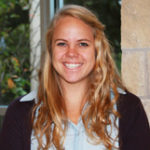 Amy Jimenez has been a Wacoan since 2009 after moving from Cincinnati, Ohio. She graduated from Baylor in 2012 with a degree in International Studies. She has interned with Waco ISD Homeless Outreach, the Cove, and also works for the Texas Hunger Initiative. She will be graduating with her Master of Social Work this May from the Diana R. Garland School of Social Work. Amy adores her best friend and husband, Blake, her dog, Marsha, and is passionate about seeking justice and loving people well here in Waco. Feel free to contact Amy at [email protected] or (254) 300-8443.
Amy Jimenez has been a Wacoan since 2009 after moving from Cincinnati, Ohio. She graduated from Baylor in 2012 with a degree in International Studies. She has interned with Waco ISD Homeless Outreach, the Cove, and also works for the Texas Hunger Initiative. She will be graduating with her Master of Social Work this May from the Diana R. Garland School of Social Work. Amy adores her best friend and husband, Blake, her dog, Marsha, and is passionate about seeking justice and loving people well here in Waco. Feel free to contact Amy at [email protected] or (254) 300-8443.
The Act Locally Waco blog publishes posts with a connection to these Aspirations for Waco. If you are interested in writing for the Act Locally Waco Blog, please email [email protected] for more information.
[1] National Association for the Education of Homeless Children and Youth. (n.d.). Unaccompanied Homeless Youth. Retrieved from www.naehcy.org/educational-resources/youth
By Diego Loredo
It’s a new year and for college students a new semester! That means it’s time for relentless classes, long nights of studying, and who knows what else. For me, this is my fourth semester at UNT and I’m preparing myself for another long semester.
My spring semester is looking pretty good so far. I’m taking four classes for my major, public relations, and one foreign language class (Japanese). All of my classes are after 10 so that means I don’t have to wake up too early since I don’t have any 8 am classes anymore. Also, on Thursdays and Fridays I only have one class so that makes it easier for me. I only see myself having a problem in maybe two classes; this semester should be a good opportunity to get my GPA back up.
Now it’s time to get down to business. Going into my fourth semester, I’m getting more and more accustomed to college. Because of that, I’ve developed a few ways on how to start the semester off right. Everyone has their own way of beginning the semester but hopefully these will be helpful to any college student.
Buy a calendar!
Buying a calendar for school has become a habit of mine. You can buy a regular calendar or, like me, buy a dry-erase calendar so you can easily write/erase things. Having a calendar can help you keep track of things and make sure you don’t fall behind in any of your classes. What I do is write everything that I have to do that month so that I know exactly what is due and what I still have to time to do. A calendar is an irreplaceable, and cheap, college investment.
Introduce yourself to your classmates
I’ve said this before and I’m going to say it again. Introduce yourself to your classmates! At the end of each class, introduce yourself to a few classmates so that you have someone to go to in case you’re having trouble in that class. Or maybe you’ll be lucky enough to have a class with some friends. Having someone you can go to for help in a class will be your most valuable asset.
Dedicate a few hours a day to studying
This is hard for me to do, but it’s something I’m trying to get myself to do more. It doesn’t have to take up half your day, but dedicate maybe two or three hours a day to studying. It can even be just an hour, as long as you’re using a part of your day to get ahead in one of your classes. Another thing I do is dedicate a day during the weekend to study and catch up on my classes, then spend the night hanging out with friends. I’m not saying study every day after class, but make a schedule of when you’ll study for each class to make sure you get things done.
I know college can be stressful and not fun at all sometimes. But all it takes to make college enjoyable is to have a plan ready. Once you make that plan and stick to it, it can completely turn around your semester. If you stick to these three things, then I’m sure it’ll make your semester much easier. I’m looking forward to what this semester has in store for me and will do everything I can to make it as enjoyable as possible.
 Diego Loredo is a sophomore at the University of North Texas. He is majoring in public relations. He graduated from University High School in 2014. Although he is still not quite sure what exactly he wants to do, he thinks he wants to work somewhere in sports PR (preferably soccer or college football). His hobbies include playing soccer and golf. He is 19 years old.
Diego Loredo is a sophomore at the University of North Texas. He is majoring in public relations. He graduated from University High School in 2014. Although he is still not quite sure what exactly he wants to do, he thinks he wants to work somewhere in sports PR (preferably soccer or college football). His hobbies include playing soccer and golf. He is 19 years old.
The Act Locally Waco blog publishes posts with a connection to these Aspirations for Waco. If you are interested in writing for the Act Locally Waco Blog, please email [email protected] for more information.
(Note: This is Part 5 in a series on Pay Day lending and its effect on our Waco community. For the rest of the series, click here: Pay Day Lending in Waco. — ABT)
By Shannon Kendrick-Wittmer,
To many people, Goodwill is synonymous with thrift store, a place to find discounted clothing, furniture, or other treasures discarded by someone looking to declutter their house or make room in their closet. What most individuals don’t realize is that by donating gently used items or shopping at a Goodwill retail store, people are helping Goodwill achieve their primary mission: putting people to work. The money spent on purchases at Goodwill stays in the local community and is used to fund various employment, education, and training programs to help individuals get a job, improve their skills, and become self-sufficient. Heart of Texas Goodwill’s Learning Center services focus on job attainment, job retention, and skills building. Participants can get help improving their interview skills techniques, creating a resume, searching for a job or they can attend one of our many classes, such as Microsoft Word and Excel, GED, ESL, Parenting, and Anger Management.
While helping people gain the skills necessary to land a job is our main mission, we also recognize that we can’t help someone find a job without giving them the skills necessary to manage the money they earn. For many years, we have provided one-on-one budgeting services, financial literacy classes, and education on the pitfalls of using pay day lending, but we still encounter a large number of our participants who have fallen into debt because of the need to utilize pay day lenders for quick cash. This is a scenario playing out at many other social service agencies around Texas. At the state level, the 15 Goodwill agencies in Texas joined together, on numerous congressional years, to introduce bills that would enforce regulation of Pay Day lenders in Texas. Each time legislation was introduced, it was voted down.
Heart of Texas Goodwill, along with the other Goodwill’s in Texas, decided to focus efforts concerning pay day (predatory lending) at the local level. About this time the Citizens for Responsible Lending had their first meeting. It wasn’t long before we realized that our organization’s role could be to offer an alternative to pay day lending in the Waco area, in the form of the Community Loan Center.
There has been a lot of buzz in Waco lately about the Community Loan Center, who can utilize it, and how Goodwill is involved. Although it is still in its infancy in Waco, we foresee it as being a viable alternative to certain people needing access to cash quickly.
So what is the Community Loan Center (CLC)? The CLC Small Dollar Loan Program is an employer-based small dollar loan program administered through local nonprofits in Texas. The CLC recruits local employers to participate, at no cost, and the program is then marketed to the employer’s employees. Employees who participate are able to borrow up to $1,000 at 18% interest with up to 12 months to repay the loan. Employees can apply for the loan using an online portal and once approved, the funds are wired into their personal bank accounts. Repayment of the loan is done through payroll deduction, set up by the employer.
What is Goodwill’s role in the CLC? Heart of Texas Goodwill has committed to being the non-profit administrator of the Community Loan Center. As the administrator of the CLC, we will be responsible for recruiting area employers to sign up for the program, assisting those employers in marketing the program to their employees, and raising funds to be used as capital for the loans made to employees. Heart of Texas Goodwill Industries made the decision to create a separate 501c3 corporation for the new company, which will be named the Community Loan Center of the Heart of Texas. A board of directors have been appointed to govern this corporation and administrative duties will be handled by existing staff employed by Goodwill.
Where does the money come from to issue loans? The loan capital used by the CLC can come from a variety of sources, such as grants, investors, or low interest loans from banks. Heart of Texas Goodwill Industries, along with other community members, will be working continuously to seek funding sources for the capital pool. As the funds increase, more employers can be added to the program, therefore increasing the number of employees with access to the small dollar, low interest loans.
Why is the interest rate 18%? This may seem high to some people but it very modest in comparison to the 400%-600% charged by pay day lenders for similar loans. The 18% interest fee covers various items such as: administrative costs to run the program, defaulted loans, and interest payments for loans used in the capital pool. This interest rate also helps to increase the amount of money available in the capital pool.
Who can take part in the program? Only employees working for employers who have signed up for the program are eligible to take a small dollar loan through the Community Loan Center of the Heart of Texas. Currently, in the Waco area, the only employers enrolled in the program are the City of Waco and Waco ISD. Employees working for these entities may take a small dollar loan. At this time there is only enough money in the capital pool to cover these two employers. When we have more money in the capital pool, we can add more employers.
The Community Loan Center of the Heart of Texas will not eradicate pay day lenders all together, but we strongly believe it is a step in the right direction toward a more financially secure community. It provides people who need a small loan quickly an alternative to payday lending. We hope to see the program grow in the future to include many more employers. To that end we welcome the help of anyone in the community wanting to assist us in fundraising, which will be a key factor in growing the CLC in Waco. Anyone with questions about the Community Loan Center may contact me at the Goodwill Corporate Headquarters in Waco at 254-753-7337.
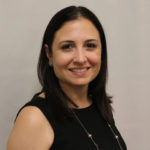 Shannon Kendrick-Wittmer is the Vice President of Mission and Workforce Advancement at Heart of Texas Goodwill Industries. She has a BA in Psychology from Baylor University and a Master’s in Business Administration from Tarleton State University. She has lived in Waco for the past 15 years, worked at Goodwill for 11 years, and has been married for a year and a half to Jonathon Wittmer, a field engineer with TYMCO.
Shannon Kendrick-Wittmer is the Vice President of Mission and Workforce Advancement at Heart of Texas Goodwill Industries. She has a BA in Psychology from Baylor University and a Master’s in Business Administration from Tarleton State University. She has lived in Waco for the past 15 years, worked at Goodwill for 11 years, and has been married for a year and a half to Jonathon Wittmer, a field engineer with TYMCO.
The Act Locally Waco blog publishes posts with a connection to these Aspirations for Waco. If you are interested in writing for the Act Locally Waco Blog, please email [email protected] for more information.
By Christine Holecek
Groundhog Job Shadow Day is a unique initiative dedicated to giving kids job  shadowing experiences. Groundhog Job Shadow kick-off day for 2016 will be February 2. On that day we will officially get going started on what we hope will be a spring blooming with job-shadowing opportunities in the Heart of Texas. The idea is to give more of our Waco area students opportunities to “shadow” a workplace mentor as he or she goes through a normal day on the job. This gives the student a chance to get an up-close look at how skills learned in school relate to the workplace.
shadowing experiences. Groundhog Job Shadow kick-off day for 2016 will be February 2. On that day we will officially get going started on what we hope will be a spring blooming with job-shadowing opportunities in the Heart of Texas. The idea is to give more of our Waco area students opportunities to “shadow” a workplace mentor as he or she goes through a normal day on the job. This gives the student a chance to get an up-close look at how skills learned in school relate to the workplace.
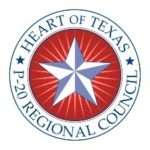 Groundhog Job Shadow Day is the joint effort of the Heart of Texas P-20 Council, Greater Waco Chamber of Commerce, Waco Business League, and Prosper Waco. McLennan Community College, Texas State Technical College and school districts in the Heart of Texas Region are also partners promoting this event.
Groundhog Job Shadow Day is the joint effort of the Heart of Texas P-20 Council, Greater Waco Chamber of Commerce, Waco Business League, and Prosper Waco. McLennan Community College, Texas State Technical College and school districts in the Heart of Texas Region are also partners promoting this event.
Job Shadowing is a Win-Win situation for all involved. For students it answers the age old question “Why do I have to learn this?” Shadowing demonstrates the importance of academics in reaching college and career goals. Shadowing also motivates students to learn by demonstrating the tangible application of classroom lessons.
For employers, Job Shadowing helps build a future workforce. Shadowing shows students career possibilities in different industries. Also the employee mentors get the feeling of personal satisfaction that comes from mentoring a young person. This opportunity offers a chance to share knowledge and skills and to help a child become a successful adult. Sometimes shadowing even leads to a long-term mentoring relationship.
Whether you are an employer, volunteer or teacher, participating in Groundhog Job Shadow Day is an easy and rewarding experience. Getting involved in Groundhog Job Shadow Day will only take a few hours of your time.
If you are an educator or an employer who would like to get involved, you can contact Christine Holecek at [email protected]. The HOT P-20 has posted some helpful job shadowing documents for you to share at: http://tinyurl.com/zynwu2r
For more information about the HOT P-20 Groundhog Job Shadow Day, please contact [email protected]
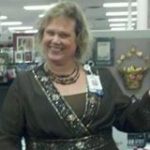 This Act Locally Waco blog post was written by Christine Holecek. Christine is an Education Specialist at Education Service Center Region 12 in Waco. She has worked in the area of Adult Education and Career & Technical Education for the past 25 years. She earned an AAS degree from MCC, a BAAS and Master’s Degree from the University of North Texas and is currently enrolled in the Doctoral Program in Educational Leadership and Policy Studies at Tarleton State University.
This Act Locally Waco blog post was written by Christine Holecek. Christine is an Education Specialist at Education Service Center Region 12 in Waco. She has worked in the area of Adult Education and Career & Technical Education for the past 25 years. She earned an AAS degree from MCC, a BAAS and Master’s Degree from the University of North Texas and is currently enrolled in the Doctoral Program in Educational Leadership and Policy Studies at Tarleton State University.
The Act Locally Waco blog publishes posts with a connection to these aspirations for Waco. If you are interested in writing for the Act Locally Waco Blog, please email [email protected] for more information.
By Donna Stauber
Waco is witness to a new era in health care. A new ministry called Faith Community Health at Baylor Scott and White-Hillcrest is helping shift the paradigm of health care by combining the caring strengths of faith communities with the clinical expertise of health care providers to improve the health of our community.
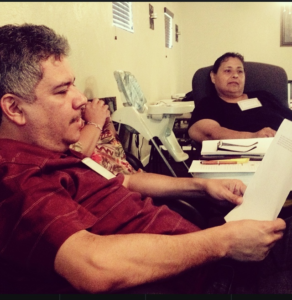 Baylor Scott and White-Hillcrest is partnering with local faith communities to provide training and support to volunteer Faith Community Caregivers to attend to their neighbors and community members during the entire span they are receiving medical care. These volunteer Faith Community Caregivers are supported through the education they receive at a 6 hour training on personal boundaries, resources, and listening skills just to list a few of the training topics. This team works closely with health care providers and other community groups to ensure people receive the care and resources they need.
Baylor Scott and White-Hillcrest is partnering with local faith communities to provide training and support to volunteer Faith Community Caregivers to attend to their neighbors and community members during the entire span they are receiving medical care. These volunteer Faith Community Caregivers are supported through the education they receive at a 6 hour training on personal boundaries, resources, and listening skills just to list a few of the training topics. This team works closely with health care providers and other community groups to ensure people receive the care and resources they need.
 Faith Community Health operates according to four principles; Right Door, Right Time, Ready to be treated and Reassured-Not Alone. It aims to help to direct people to the Right Door, or avenue of care such as seeing a primary care physician, clinic, or outpatient center in the hospital. It urges people to seek treatment at the Right Time, learning the importance of preventative care and how to recognize symptoms earlier. It also helps those needing medical treatment understand what they need and why so they can be Ready to be Treated. Finally it Reassures those facing health issues they are Not Alone. Facing illness can cause feelings of anxiety, isolation or fear. Faith Community Health not only provides support in physical healing but also the support of a calm presence during trying times.
Faith Community Health operates according to four principles; Right Door, Right Time, Ready to be treated and Reassured-Not Alone. It aims to help to direct people to the Right Door, or avenue of care such as seeing a primary care physician, clinic, or outpatient center in the hospital. It urges people to seek treatment at the Right Time, learning the importance of preventative care and how to recognize symptoms earlier. It also helps those needing medical treatment understand what they need and why so they can be Ready to be Treated. Finally it Reassures those facing health issues they are Not Alone. Facing illness can cause feelings of anxiety, isolation or fear. Faith Community Health not only provides support in physical healing but also the support of a calm presence during trying times.
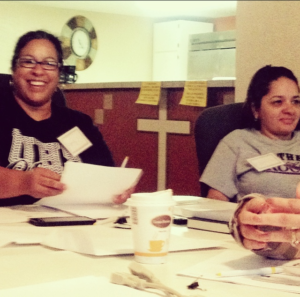 Donna Stauber, Ph.D., Program Manager, Innovations, Spiritual Care Delivery, is exploring the ways Faith Community Health can best serve the Waco area. For the past few months, Stauber has been training volunteers to be Faith Community Caregivers around the Waco area. Pictured above is the training at Family of Faith Worship Center in North Waco. For more information or how to receive training for your church, contact Dr. Stauber by email at [email protected] or by phone at 254-855-0579.
Donna Stauber, Ph.D., Program Manager, Innovations, Spiritual Care Delivery, is exploring the ways Faith Community Health can best serve the Waco area. For the past few months, Stauber has been training volunteers to be Faith Community Caregivers around the Waco area. Pictured above is the training at Family of Faith Worship Center in North Waco. For more information or how to receive training for your church, contact Dr. Stauber by email at [email protected] or by phone at 254-855-0579.
 Donna Stauber has over 25 years of experience in health education, nutrition, wellness, leadership development and motivation. Presently as Program Manager, Innovations, Spiritual Care Delivery for the Baylor S&W System, she is working at her dream job of connecting faith communities with healthcare. Donna also teaches as adjunct faculty for the department of Health and Human Services at Baylor University. She has three children and 9 grandchildren and has been married to her best friend George for 28 years and loves to fish, bird watch, float, and farm.
Donna Stauber has over 25 years of experience in health education, nutrition, wellness, leadership development and motivation. Presently as Program Manager, Innovations, Spiritual Care Delivery for the Baylor S&W System, she is working at her dream job of connecting faith communities with healthcare. Donna also teaches as adjunct faculty for the department of Health and Human Services at Baylor University. She has three children and 9 grandchildren and has been married to her best friend George for 28 years and loves to fish, bird watch, float, and farm.
The Act Locally Waco blog publishes posts with a connection to these aspirations for Waco. If you are interested in writing for the Act Locally Waco Blog, please email [email protected] for more information.
by Emily Mills
The weight of holding a story is a sacred one. Holding your own narrative, really owning your story is powerful. I learned how to own my story through an unlikely source. Commercial sex exploits, women working in the sex industry, invited me into the journey of self-discovery. Over a decade ago, I began reaching out, extending myself to women in strip clubs. Looking back, I know now why I was there. It wasn’t about saving “them”… it was about knowing myself. Through the sacred journey of holding their stories, I began to own mine.
Like many of the women I met, I too experienced childhood sexual abuse. I wasn’t sure how comfortable I was with this term. I was no victim. I was a survivor. I didn’t “need” anything from anyone. I would learn how to do life on. my. own. And this attitude is EXACTLY the story of a commercial sex exploit. What a perverted sense of pride I had found in “pulling myself up by the bootstraps”. My addiction bore the markings of religion, theirs the sex industry. What was the difference? Both of us used something to make us feel powerful. Needless to say, God has continued to save me daily through the work of Jesus Said Love, a ministry sharing the revolutionary love of Christ with women in the commercial sex industry. I have learned that I am she, and she is me…and we’re in this life together.
 Last year, we embarked on our first gala-esque fundraiser, Wild Torch. A night carrying the story of the women we reach through the visual and performing arts. It was purely magical. This year, Wild Torch will blaze on April 11, 2016, at the Hippodrome. Our concept is to swim up the river a bit and through the arts answer the question, “Where does the life of a commercial exploit begin?” And while we can’t make grand assumptions and sweeping generalizations, the statistics and data are flooring:
Last year, we embarked on our first gala-esque fundraiser, Wild Torch. A night carrying the story of the women we reach through the visual and performing arts. It was purely magical. This year, Wild Torch will blaze on April 11, 2016, at the Hippodrome. Our concept is to swim up the river a bit and through the arts answer the question, “Where does the life of a commercial exploit begin?” And while we can’t make grand assumptions and sweeping generalizations, the statistics and data are flooring:
- The average age of entry into the commercial sex industry is 12 years old for a female.
- Upwards of 80% of commercial sex exploits were sexually abused as children.
- 70% of all human trafficking victims in the US come through the commercial side.
- The number one risk factor for human trafficking is poverty.
- 89% of women in the commercial sex industry say they want out but have no other means of survival.
For more facts and information visit: http://jesussaidlove.com/freeher-facts
While the data is gut wrenching, Wild Torch will display the remarkable story of three women who have beat the odds of the industry! Through powerful dance, song and film we will share and celebrate their resiliency! The funds raised this year will go toward The Dixie Fund, a transition fund for women escaping the industry. Through this fund we not only are able to alleviate financial crises due to leaving the industry, but also empower women with funding for entrepreneurial endeavors!
Last year’s funds went to refurbishing the new JSL headquarters at 1500 Columbus. This year, funds raised for The Dixie Fund will help us transition women out of the industry through educational programs and job training, employ former exploits, and launch businesses! Come carry fire with us at Wild Torch 2016! Find out more at www.wildtorch.com.
 Emily Mills received her B. A. in Communications from Baylor University. While at Baylor, Emily participated in various opportunities to serve the marginalized and lead worship. This began her passionate pursuit to “put feet” on the songs she was singing. In 2003, while leading worship at a conference for women exiting the sex industry, these two worlds collided and Jesus Said Love was born. Emily continues to lead worship around the country with her husband, Brett. They have three children: Hattie, Lucy and Gus. To learn more about Wild Torch, visit wildtorch.com or our website JesusSaidLove.com. Contact us at [email protected].
Emily Mills received her B. A. in Communications from Baylor University. While at Baylor, Emily participated in various opportunities to serve the marginalized and lead worship. This began her passionate pursuit to “put feet” on the songs she was singing. In 2003, while leading worship at a conference for women exiting the sex industry, these two worlds collided and Jesus Said Love was born. Emily continues to lead worship around the country with her husband, Brett. They have three children: Hattie, Lucy and Gus. To learn more about Wild Torch, visit wildtorch.com or our website JesusSaidLove.com. Contact us at [email protected].
The Act Locally Waco blog publishes posts with a connection to these aspirations for Waco. If you are interested in writing for the Act Locally Waco Blog, please email [email protected] for more information.
by Jenuine Poetess
We’re almost two weeks into the New Year and for some, just hearing the word “resolutions” can cause eyes to roll and groans to emit. I know. It has become rather cliché. Even so, there is value in a ritual of reflection—gazing back on what we’ve accomplished and how far we’ve come, and there is an important humility in recognizing ways we have yet to stretch, grow, and become. A new year, new week, new month, new day are all great times to reflect, recalibrate, and resume our movements toward what it is that makes us come alive.
 As an artist, fresh starts can look like raw clay, blank canvas, empty pages, a quiet studio, an open stage, a fresh roll of film (er…uh…or an empty memory card), a furnace of molten glass, a beautiful blank wall, skeins of untouched yarn, newly tilled soil, or folds of new fabric. Just the thought of any of these sends my heart trilling with the aroma of possibility.
As an artist, fresh starts can look like raw clay, blank canvas, empty pages, a quiet studio, an open stage, a fresh roll of film (er…uh…or an empty memory card), a furnace of molten glass, a beautiful blank wall, skeins of untouched yarn, newly tilled soil, or folds of new fabric. Just the thought of any of these sends my heart trilling with the aroma of possibility.
Whether or not you are an artist (and not-so-secretly, I believe everyone can accomplish their work with artistry from mechanics to accountants, from care-givers to morticians) I challenge you to consider your creative health and how you will intentionally nourish this part of you throughout 2016.
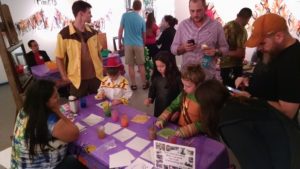 Will you take in a night at the Waco Symphony or maybe attend or even participate in a Waco Community Band concert? Maybe you’ll spend some time at the Martin Museum of Art, or the Art Center of Waco, or the Anthem Studios—maybe you’ll attend an opening, or maybe you’ll head over on your lunch break, just an intimate rendezvous between you and art. Will you visit the theater, taking a play by Waco Civic Theater or a concert by the Central Texas Choral Society or enjoy a dose of laughter medicine at an improve show with the Brazos Theatre Group, maybe you’ll support emerging artists and see a show at Baylor or MCC or at Waco High, University High or Midway ISD?
Will you take in a night at the Waco Symphony or maybe attend or even participate in a Waco Community Band concert? Maybe you’ll spend some time at the Martin Museum of Art, or the Art Center of Waco, or the Anthem Studios—maybe you’ll attend an opening, or maybe you’ll head over on your lunch break, just an intimate rendezvous between you and art. Will you visit the theater, taking a play by Waco Civic Theater or a concert by the Central Texas Choral Society or enjoy a dose of laughter medicine at an improve show with the Brazos Theatre Group, maybe you’ll support emerging artists and see a show at Baylor or MCC or at Waco High, University High or Midway ISD?
Maybe you’ll hit the streets and meet new neighbors at Art on Elm Ave. or Waco Cultural Arts Fest enjoying all the fullness of free arts programming in Waco and maybe you’ll purchase a print, or a set of earrings, or a new mug, or an original art piece. Maybe you’ll buy a Creative Waco tote hand-painted by a local artist, maybe you’ll by two—one for you and one for a friend. Maybe you’ll take a flower-arranging workshop at the World Hunger Relief Farm, or help out with the Urban Gardening Coalition.
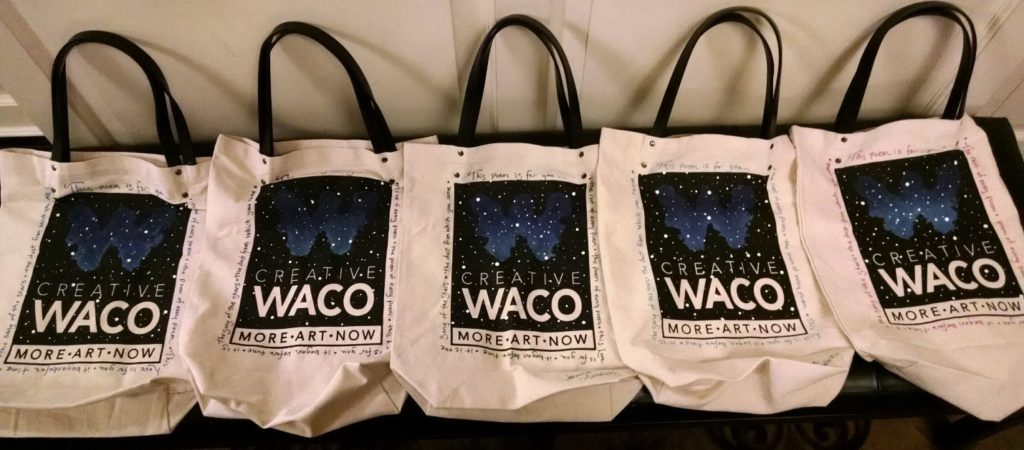
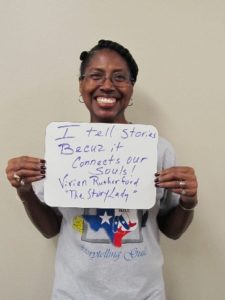 Maybe you’ll knit or crochet tiny hats for new babies, scarves for refugees, or blankets for an elder with the Waco Knitters & Crocheters. Maybe you’ll listen to some stories, even try your hand at your own at the Heart of Texas Storytelling Guild. Will you check out Maker’s Edge and laser cut, 3D print, or wood burn a fascinating piece for your home? Maybe you’ll stop by Central Texas Artist Collective’s painting in the park station one breezy day in the spring, or finally work up the courage to exhibit your work at Tea2Go or Rufi’s Cocina.
Maybe you’ll knit or crochet tiny hats for new babies, scarves for refugees, or blankets for an elder with the Waco Knitters & Crocheters. Maybe you’ll listen to some stories, even try your hand at your own at the Heart of Texas Storytelling Guild. Will you check out Maker’s Edge and laser cut, 3D print, or wood burn a fascinating piece for your home? Maybe you’ll stop by Central Texas Artist Collective’s painting in the park station one breezy day in the spring, or finally work up the courage to exhibit your work at Tea2Go or Rufi’s Cocina.
Maybe you’ll make your own ornament and learn a bit about blowing glass next December at Stanton Glass Studio. Maybe you’ll decide it’s time to finally get serious about that book you’ve always wanted to write and you’ll join In the Words of Womyn writing circle or maybe you’ll tackle NaNoWriMo with the Central Texas Writers’ League or take a workshop with the Heart of Texas Romance Writer’s. Maybe you’ve been quiet long enough and you’re ready to get up and perform at Waco Poets Society monthly open mics and maybe you’ll take in some world renown poets at the Beall Poetry Festival this spring.
 Maybe you’ll volunteer at any number of community arts events or make a financial contribution so that we can all keep creating. Maybe you’ll help share events on social media, telling your friends and neighbors about arts and cultural opportunities nearby. Maybe you’ll make it a regular outing with a partner, some friends, or co-workers at Painting with a Twist or Practically Pikasso. Maybe you’ll bookmark this post so when you have a day with no particular plans, you’ll have some ideas for how to paint the town!
Maybe you’ll volunteer at any number of community arts events or make a financial contribution so that we can all keep creating. Maybe you’ll help share events on social media, telling your friends and neighbors about arts and cultural opportunities nearby. Maybe you’ll make it a regular outing with a partner, some friends, or co-workers at Painting with a Twist or Practically Pikasso. Maybe you’ll bookmark this post so when you have a day with no particular plans, you’ll have some ideas for how to paint the town!
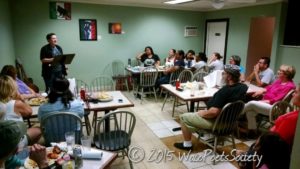 My goodness the arts are blooming in Waco! Even with all these options, I’m sure I didn’t capture them all. But that’s okay, this way you can do some exploring with an art adventure of your own—whatever you find, please be sure to share it with us so we can enjoy it too! I hope whatever your goals for 2016, that they include the arts, in any way, shape, form, or expression.
My goodness the arts are blooming in Waco! Even with all these options, I’m sure I didn’t capture them all. But that’s okay, this way you can do some exploring with an art adventure of your own—whatever you find, please be sure to share it with us so we can enjoy it too! I hope whatever your goals for 2016, that they include the arts, in any way, shape, form, or expression.
Thrive on!
 Jenuine Poetess is an artist, visionary, and community organizer. In 2010, she founded In the Words of Womyn (ITWOW), an international, grass-roots, written and spoken-word arts project with chapters throughout Los Angeles, CA; Waco, TX; and Lebanon. Jenuine is the founder of Waco Poets Society and co-founder of the Central Texas Artist Collective. She writes, organizes, and creates rooted in the fierce conviction that holding intentional space, access, and opportunity for all people to foster their creative health is a matter of justice and is a vital asset to the sustainable thriving of communities. She currently lives and poems in Central Texas where she enjoys finding new ways to disrupt the homeostasis of her city. You can contact her at: j[email protected].
Jenuine Poetess is an artist, visionary, and community organizer. In 2010, she founded In the Words of Womyn (ITWOW), an international, grass-roots, written and spoken-word arts project with chapters throughout Los Angeles, CA; Waco, TX; and Lebanon. Jenuine is the founder of Waco Poets Society and co-founder of the Central Texas Artist Collective. She writes, organizes, and creates rooted in the fierce conviction that holding intentional space, access, and opportunity for all people to foster their creative health is a matter of justice and is a vital asset to the sustainable thriving of communities. She currently lives and poems in Central Texas where she enjoys finding new ways to disrupt the homeostasis of her city. You can contact her at: j[email protected].
The Act Locally Waco blog publishes posts with a connection to these aspirations for Waco. If you are interested in writing for the Act Locally Waco Blog, please email [email protected] for more information.
By Saul Cornejo Bravo
“I can’t wait to get out of Waco!” Throughout my high school years, I expressed this thought often.
I have been living in Waco since I was eight years old, when my family moved here from Phoenix, Arizona. Since then, more often than not, I have viewed Waco as a boring city with not much to offer, mainly because we don’t have a Six Flags or Laser Tag arena. Now that I’ve become more involved in my community, my perspective on Waco is changing. Since starting an internship at First Friday Waco, an organization that partners with local businesses to promote downtown Waco, my hope and excitement for the future of Waco has been renewed.
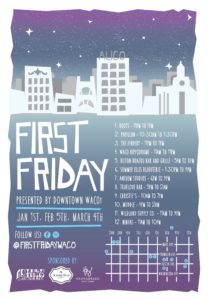 First Friday Waco was started in early 2013 by Peter Ellis when he saw the need to have a strong downtown network of local businesses supporting one another. First Friday Waco’s vision is that as downtown Waco grows it will become an inclusive hub for local business owners to support each other and make downtown a great destination for visitors and patrons. I was given the opportunity to help in Peter’s vision when I started an internship with First Friday Waco in late October. At First Friday Waco, we fulfil this vision by collaborating with businesses to create a monthly celebration to promote downtown Waco. The businesses agreed to extend their hours, offer specials, and/or hold special events every First Friday of the month, with festivities usually starting as early as 11am on Friday and going as late as 2 am Saturday morning. First Friday is a great opportunity to meet awesome local people – including artists, authors, musicians, and designers – who are enriching our local culture.
First Friday Waco was started in early 2013 by Peter Ellis when he saw the need to have a strong downtown network of local businesses supporting one another. First Friday Waco’s vision is that as downtown Waco grows it will become an inclusive hub for local business owners to support each other and make downtown a great destination for visitors and patrons. I was given the opportunity to help in Peter’s vision when I started an internship with First Friday Waco in late October. At First Friday Waco, we fulfil this vision by collaborating with businesses to create a monthly celebration to promote downtown Waco. The businesses agreed to extend their hours, offer specials, and/or hold special events every First Friday of the month, with festivities usually starting as early as 11am on Friday and going as late as 2 am Saturday morning. First Friday is a great opportunity to meet awesome local people – including artists, authors, musicians, and designers – who are enriching our local culture.
Through my work at First Friday Waco, I’ve also gotten to learn about other organizations that are working to make Waco a better place. For example, Creative Waco is an organization that supports the creative community in Waco. They recently started their #NotJustABag campaign which is raising money to make Waco a Texas Commission on the Arts designated Cultural District. Another example is this website, Act Locally Waco. The Act Locally Waco blog provides a place for individuals like me to share their thoughts. The Act Locally Waco “Twelve Aspirations for Waco” resonate with me completely and excite me about Waco’s future because they will bring the community closer together to solve issues.
So now when I think about Waco, I don’t feel disappointment that we don’t have Six Flags or Laser Tag, but rather excitement for the things to come. In my opinion, what is being done at First Friday Waco, Creative Waco, and Act Locally Waco (to name a few) is what will make our city great. The more I become involved in the city, the more I appreciate what it truly has to offer: a great community willing to make a difference. My internship with First Friday Waco will soon come to an end, but my desire to be involved in my community won’t. As I’m getting ready to leave Waco, I find myself thinking “I can’t wait to get back to my city.”
 Saul Cornejo Bravo is a student at McLennan Community College and currently interns at First Friday Waco. He is passionate about community development and plans to transfer to UT Austin and major in Economics. If you want to know about First Friday Waco’s upcoming events please visit the Facebook page: FirstFridayWaco.
Saul Cornejo Bravo is a student at McLennan Community College and currently interns at First Friday Waco. He is passionate about community development and plans to transfer to UT Austin and major in Economics. If you want to know about First Friday Waco’s upcoming events please visit the Facebook page: FirstFridayWaco.
The Act Locally Waco blog publishes posts with a connection to these Aspirations for Waco. If you are interested in writing for the Act Locally Waco Blog, please email [email protected] for more information.
By Michelle Nosrat
 When most of us think of baby food, we think of unappetizing cans full of pureed carrots and peas. Zoi Maroudas, a Baylor alumnus and mother, has set out to change this stigma and bring baby food into the 21st century with her company, Bambinos Baby Food. Maroudas, who moved from Greece to Alaska when she was four years old, grew up working in her parents’ Mediterranean restaurant, originally came to Baylor for the medical program and the close-knit community.
When most of us think of baby food, we think of unappetizing cans full of pureed carrots and peas. Zoi Maroudas, a Baylor alumnus and mother, has set out to change this stigma and bring baby food into the 21st century with her company, Bambinos Baby Food. Maroudas, who moved from Greece to Alaska when she was four years old, grew up working in her parents’ Mediterranean restaurant, originally came to Baylor for the medical program and the close-knit community.
While living in Waco, Maroudas worked at Hillcrest Hospital in geriatrics, where she helped patients build up their strength. Maroudas realized that her patients did not enjoy eating the hospital food, and, having grown up in a family where good food was a central part of life, she decided to approach the hospital cook about making the food not only healthy, but delicious.
Soon after, Maroudas made the transition into researching the diets of children. She saw the rising numbers of severe food allergies and obesity concerns across our nation and knew that she could use her medical background and experience in a restaurant to make healthy, yummy food that is also practical and sustainable. Maroudas conducted intensive analyses of her recipes that specifically focused on allergies, age appropriate nutrition and savory flavors. Then she took her products to be analyzed and approved by allergists and pediatricians. Bambinos was founded in Alaska and ships baby food across the nation to parents directly.
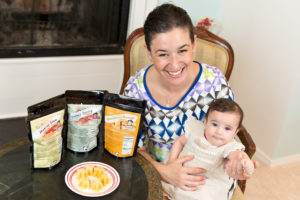 As Bambinos continues to expand they are scouting across Texas looking for additional manufacturing locations and Waco is among of them. Maroudas says she is looking forward to creating new job opportunities, contracting local organic farmers for fruits and veggies and giving students opportunity to learn about nutrition and the manufacturing industry. The company is eco-friendly and continually aims to be entirely transparent, so parents know everything about the food they are feeding their children.
As Bambinos continues to expand they are scouting across Texas looking for additional manufacturing locations and Waco is among of them. Maroudas says she is looking forward to creating new job opportunities, contracting local organic farmers for fruits and veggies and giving students opportunity to learn about nutrition and the manufacturing industry. The company is eco-friendly and continually aims to be entirely transparent, so parents know everything about the food they are feeding their children.
The new location will continue to encourage parents to stop by and see the manufacturing facility, ask questions about products and watch as the food is made. All Bambinos Baby Food is organic, all natural, and kosher. Bambinos Baby Food is a completely unique product. Each spoon full offers a complete balance of protein, grain and veggies. All of the meals are frozen, so the natural nutrients are preserved, whereas the canning processes used by most baby food companies loses many of those nutrients.
Maroudas wanted her food to be savory, as well as be healthy. She incorporates flavors commonly found in the Mediterranean diet so that babies develop a sense for those flavors earlier in life, which results in children learning to follow a healthy diet in the long run. Maroudas also incorporates seafood, so that babies can get natural omega 3 nutrients into their diets which is very important nutrient for brain development and social neural interactions.
 One of the most distinct elements of Maroudas and Bambinos is that she worked closely with allergists and pediatricians to make the food not only delicious, but healthy. Maroudas, in her research, discovered that nut allergies have become much more prevalent in children in recent years. In response to this, she used a study published in the New England Journal of Medicine to formulate her Peanut Mani Cookies. The recipe is a trade secret. It contains the exact amount of peanut protein to help a child develop an immunity to nuts, reducing the outbreak by 72%, when eaten once a day starting when the baby is four months old. The cookies are sweetened using oranges and carrots, so there is no added sugar at all, plus they are a great a source for beta carotene essential for eye development. And the best part is that they are not just for babies, but parents enjoy them as well.
One of the most distinct elements of Maroudas and Bambinos is that she worked closely with allergists and pediatricians to make the food not only delicious, but healthy. Maroudas, in her research, discovered that nut allergies have become much more prevalent in children in recent years. In response to this, she used a study published in the New England Journal of Medicine to formulate her Peanut Mani Cookies. The recipe is a trade secret. It contains the exact amount of peanut protein to help a child develop an immunity to nuts, reducing the outbreak by 72%, when eaten once a day starting when the baby is four months old. The cookies are sweetened using oranges and carrots, so there is no added sugar at all, plus they are a great a source for beta carotene essential for eye development. And the best part is that they are not just for babies, but parents enjoy them as well.
Bambino’s Baby Food is available online, where you can purchase by the case, or through a subscription service. One case holds about a month’s supply of a particular dish, but can be kept frozen for as long as needed. Gift cards are also available for purchase, which is a perfect New Year’s resolution present for any new or expecting parent! More information about the products, including ingredients and nutrition facts are available at their website, bambinosbabyfood.com. Check them out on Facebook and Twitter as well!
 Michelle Nosrat is an AmeriCorps VISTA for ex-offender re-entry with the McLennan County Reintegration Roundtable. She has a Bachelor’s of Arts in English from the Honors College at Baylor University, and is planning to pursue a Master’s degree in Social Work. She currently lives in Waco with her puppy, Penny Lane.
Michelle Nosrat is an AmeriCorps VISTA for ex-offender re-entry with the McLennan County Reintegration Roundtable. She has a Bachelor’s of Arts in English from the Honors College at Baylor University, and is planning to pursue a Master’s degree in Social Work. She currently lives in Waco with her puppy, Penny Lane.
The Act Locally Waco blog publishes posts with a connection to these Aspirations for Waco. If you are interested in writing for the Act Locally Waco Blog, please email [email protected] for more information.
by Lisa Dickison
(Note: This is Part 4 in a series on Pay Day lending and its effect on our Waco community. For the rest of the series, click here: Pay Day Lending in Waco. — ABT)
Reason 1: The label “predatory” for Payday loans is an exaggeration.
A predator in the animal kingdom is one that stalks and hunts its prey. The payday loan companies are not stalking customers and forcing them into the store. Customers freely enter. They don’t grab the customers’ hands and force them to sign. In spite of the stacks of pages they must sign, a transaction is very simple: to borrow this much, for this time period, you will pay this much in fees and this much total. “Predatory” is not an accurate description. Everything is in the open and not forced.
Reason 2: Restrictions on payday loans remove options from those who already have few options.
I have experience with this. I’m a customer of these places. Much less so now that I’ve learned to better handle money, but it has saved me a few times. Once, I needed a $700 car repair. I didn’t have the cash on hand, but I needed my car. That’s how I got to work. I’m fortunate now that I can work from home. Many people do not have that luxury. For many, if they can’t get to work, they will lose their job. Restricting access to a quick way to get money just exacerbates the problem. Banks no longer loan money in those small amounts. They certainly don’t loan money to those with poor credit. If these loan companies cannot make a decent profit, which is the goal of being in business, they will leave town leaving those who already have few options with even fewer options.
Reason 3: It’s not the proper role of municipal government.
Different levels of government are designed for different purposes. The purpose of local government is to provide basic services (roads, water, trash collection) and to make laws that make it easier to live together in communities. We have laws that require lawns be mowed so that our neighborhoods are not overrun with vermin. State laws govern traffic laws for the most part, but cities decide where to put traffic lights, stop signs, and other traffic control devices. Municipal governments should not protect residents from their own poor decisions.
Despite these opinions, I absolutely support a market-based alternative that is not funded by taxpayer dollars. I hope that the alternative being proposed works and is sustainable. It may not totally replace payday loan providers, but it may give some relief to those who are in need of additional options to manage emergencies.
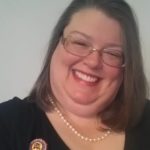 Lisa Dickison is a local political activist who has lived in Waco more than half her life. Her passions are defending the Constitution, election integrity and protecting the right of the people to self-govern. She is Republican Precinct Chair for Precinct 29.
Lisa Dickison is a local political activist who has lived in Waco more than half her life. Her passions are defending the Constitution, election integrity and protecting the right of the people to self-govern. She is Republican Precinct Chair for Precinct 29.
The Act Locally Waco blog publishes posts with a connection to these Aspirations for Waco. If you are interested in writing for the Act Locally Waco Blog, please email [email protected] for more information.
